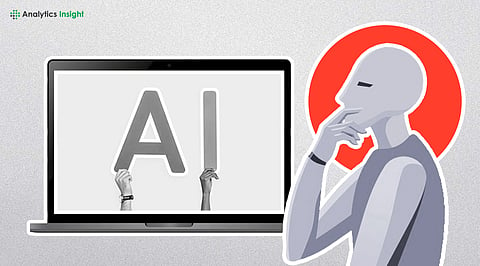

Use AI for Speed and Repetition: AI excels at automating simple, repetitive tasks and analyzing large data sets quickly.
Keep Humans in the Loop: For creativity, ethics, and complex judgment, human insight is essential.
Balance is Crucial: Wise use of AI boosts efficiency; misuse risks bias, confusion, and harm.
Artificial intelligence is everywhere. It powers smart tools, suggests songs, writes emails, and even reads X-rays. Knowing when to use AI and when to avoid it is not always clear. AI can help save time, cut costs, and bring speed. In some cases, it can also confuse, misjudge, or cause harm if used carelessly.
The real power of AI lies in using it with care. It works best when paired with human thinking, not when used as a total replacement. AI is fast and accurate with tasks like sorting data or writing drafts. This technology cannot match human creativity or deep understanding.
Automating Repetitive Tasks: AI is great at doing tasks that are boring, long, or basic. These include sorting emails, entering data, and giving quick customer replies. In these cases, AI can work non-stop and with few errors.
Data Analysis and Pattern Recognition: Large data sets are hard to read. AI tools can scan them fast. They can spot trends, find errors, and suggest actions. For business, science, and health, this can save time and improve accuracy.
AI for Content Drafting: AI helps in content creation by giving outlines, rough drafts, and topic ideas. It supports the early stage of writing. However, human touch is still needed to make it personal and clear.
Personalized Suggestions: AI learns user behavior and habits. Based on this, it offers product tips, show suggestions, or even news updates. This works well in apps, shopping sites, and content platforms.
Early Disease Detection: AI is trained to read scans and health data. It can find signs of disease early. Doctors can then take action quickly. This is useful in cancer screening, heart health, and many other things.
Lack of Creativity and Emotional Depth: AI can mimic art and text. But it lacks true emotion and fresh thinking. Creative writing, artwork, or ad campaigns need a human brain behind them.
Tasks with Ethical Weight: AI doesn’t understand right or wrong. In sensitive areas like justice, hiring, or finance, human values matter. AI might reflect bias if left unchecked.
Context-Sensitive Decisions: AI may miss sarcasm, hidden meanings, or social tone. In jobs that need judgment or human sense, AI can fail. For example, mental health chats or courtroom reports.
Also Read – Impact of AI on Tech Jobs: Replacement or Augmentation?
Learning and Growth Tasks: Trying to offload a skill or a body of knowledge into an AI could be counterproductive for learning-it's practice that counts, not shortcuts.
High-Stakes Areas Without Oversight: One error can lose lives or careers during flights, surgeries, or laws. AI must never decide in such areas alone. There have to be human checks.
Bias in AI: AI learns from data. If the data is biased, so will be the results of AI, leading to unfair decisions in hiring, justice, and other fields.
Lack of Explainability: Many of the AI models explained cannot show why, only that a candidate was accepted or rejected. In law or health, this kind of black-box decision-making causes serious trust issues.
Poor Context Understanding: AI sees patterns but does not "understand". It will take tone, jokes, or rare events the wrong way. When it comes to grasping subtle messages, humans win.
AI is simply another tool. It is not a mind; it can assist human effort but cannot replace human judgment. Let AI tackle the fast and tedious jobs; meanwhile, hold matters of ideas, ethics, and emotion for human consideration. The balance must be retained, taking full advantage of the opportunities provided by AI.
Knowing when to use or not to use AI protects quality, fairness, and creativity. If we use AI wisely, it is our friend; if not, it becomes a risky shortcut. Users are advised to find middle ground,which is the perfect convergence in this situation.
Also Read – China’s DeepSeek Starts Global Hiring Drive for Top AI Talent
Q.1) When should I use AI?
Ans. Use AI when tasks are repetitive, data-driven, or need fast results. AI is ideal for customer support, content suggestions, and data analysis. It boosts efficiency where rules are clear and human input is limited.
Q.2) When should I avoid using AI?
Ans. Avoid AI when decisions need emotional intelligence, ethics, or creativity. Human judgment is better for personal care, counseling, and moral decisions. Don’t use AI where risks or consequences are unpredictable.
Q.3) Is AI good for customer service?
Ans. Yes, AI is great for handling simple queries, chatbots, and quick support. Use AI to save time and offer 24/7 help. But avoid AI when users need emotional support or complex solutions.
Q.4) When to use AI in business?
Ans. Use AI to automate tasks, analyze customer data, and improve decision-making. AI helps with marketing, sales, and operations. But avoid AI in final decisions needing ethics, trust, or deep human insight.
Q.5) Can I avoid AI completely?
Ans. You can avoid AI in areas needing creativity, empathy, or complex decisions. But AI is now part of many tools, so using it wisely—not avoiding it entirely—is smarter for most people.
